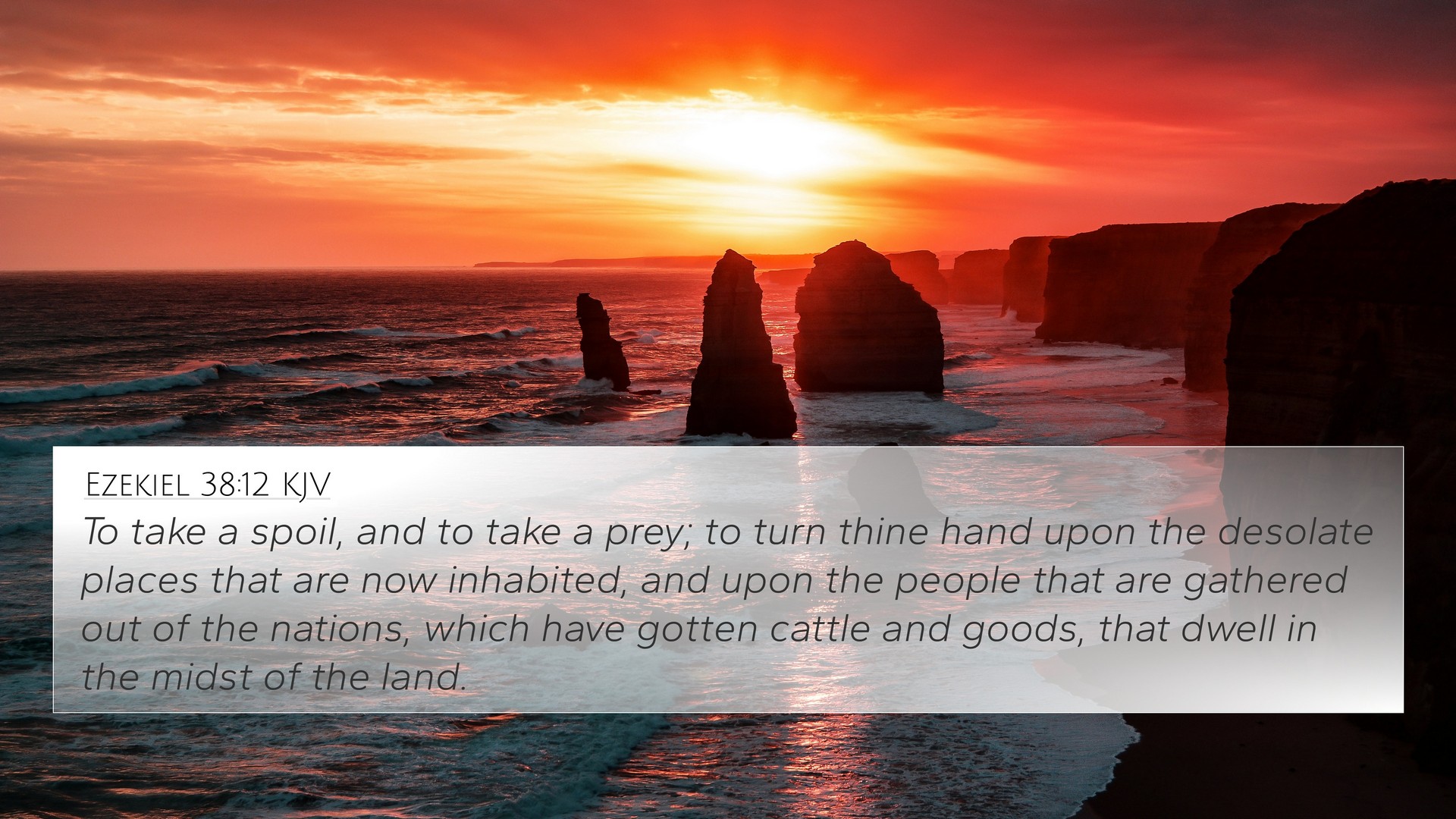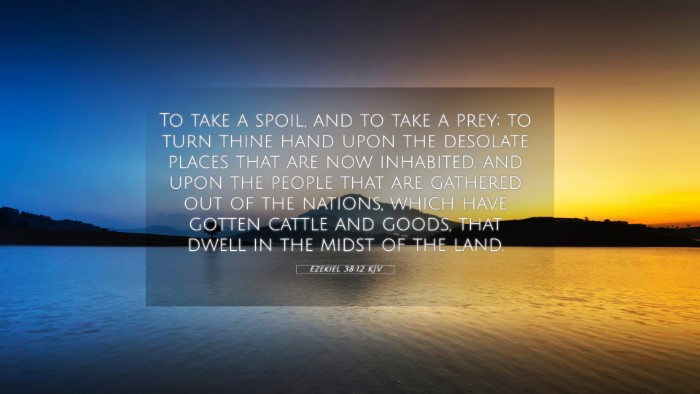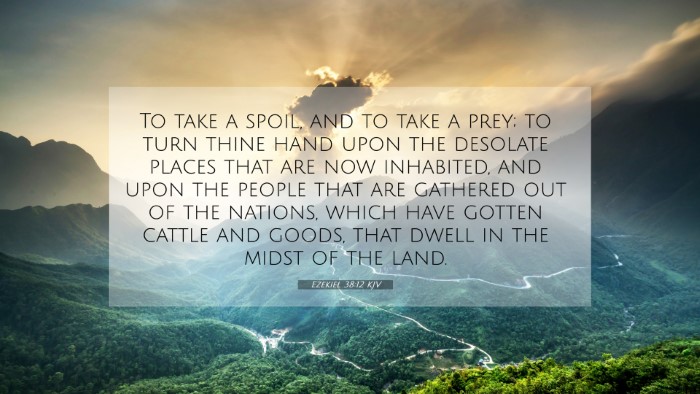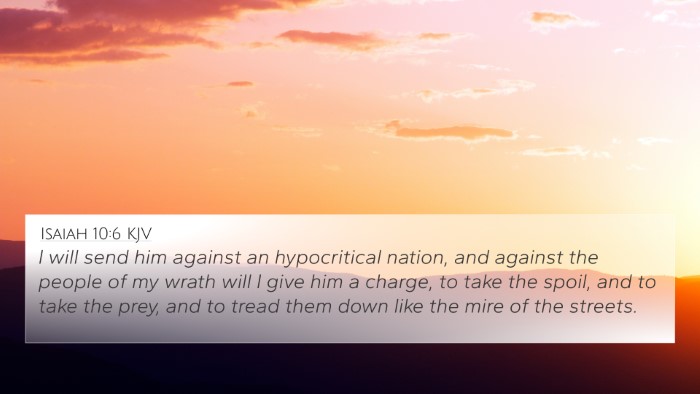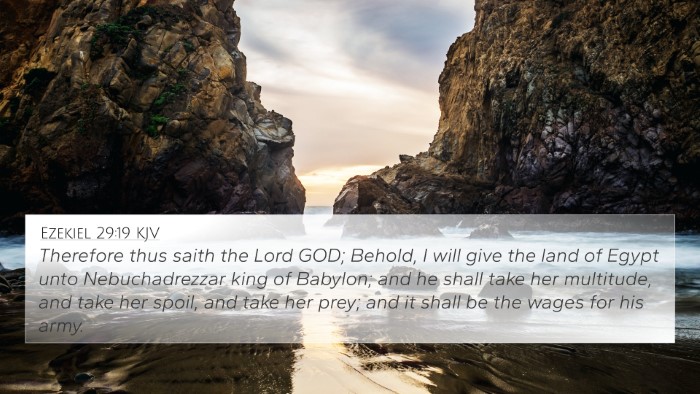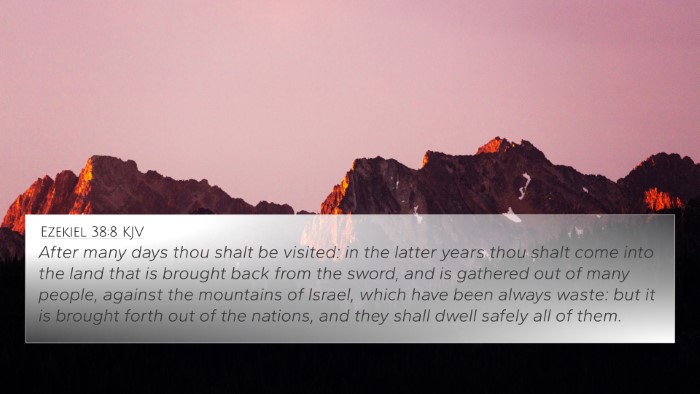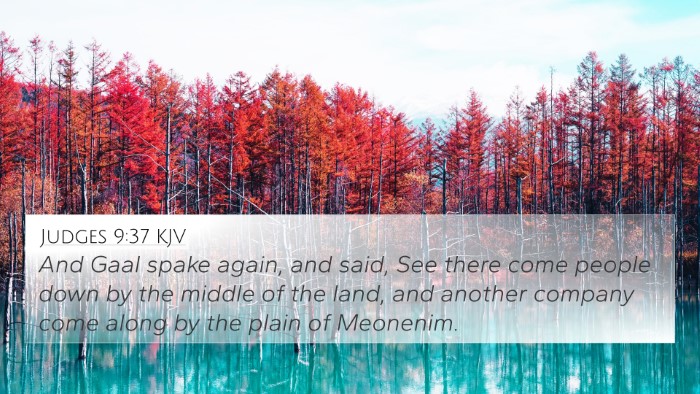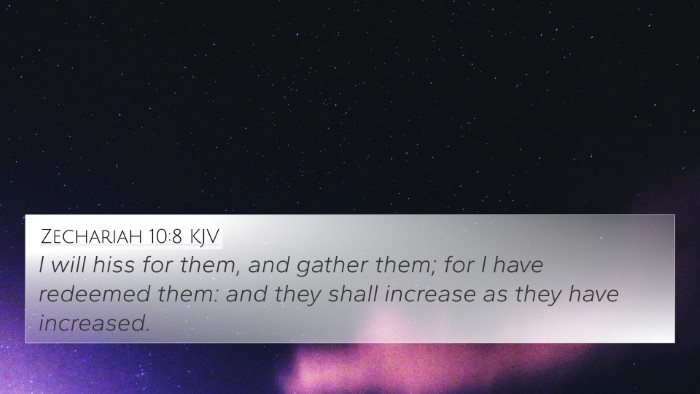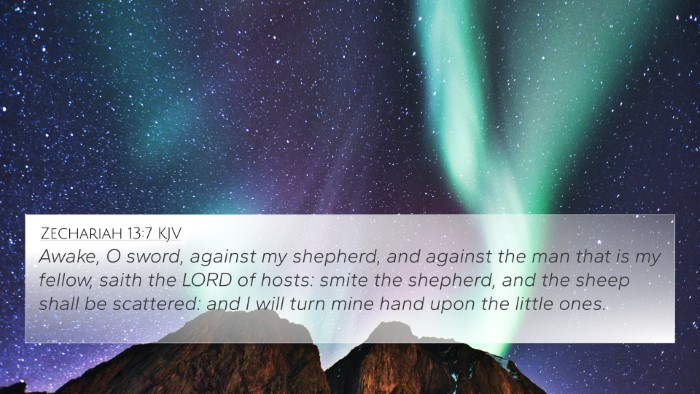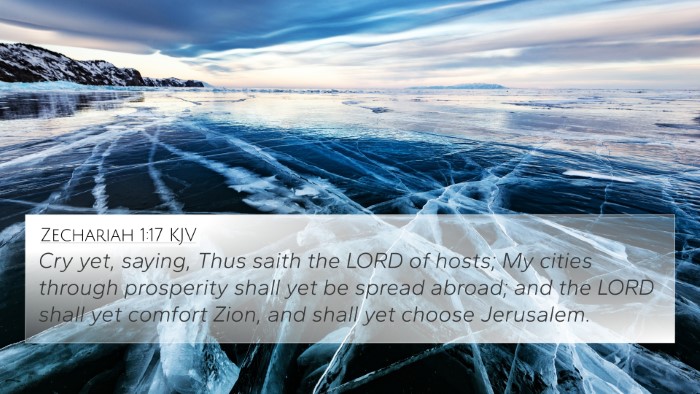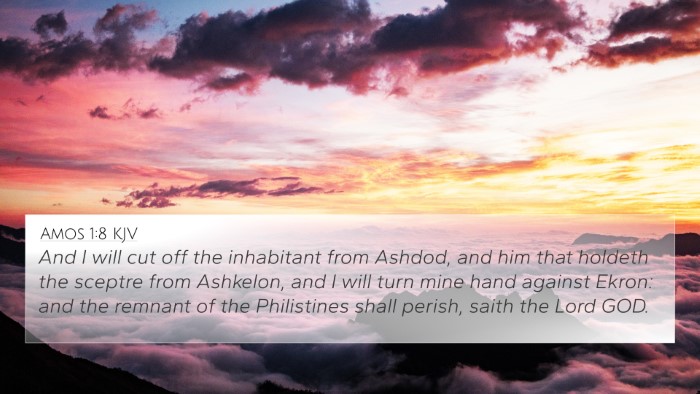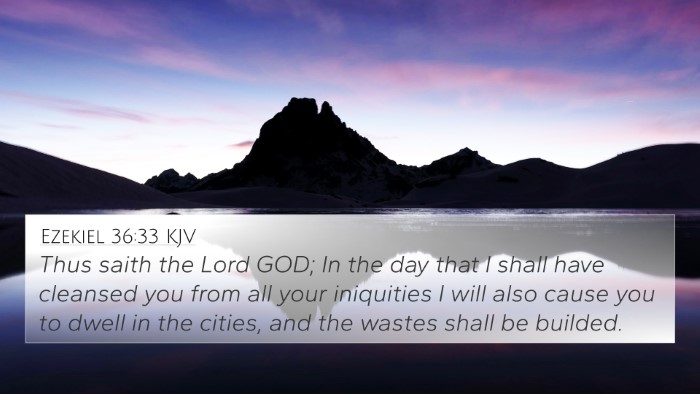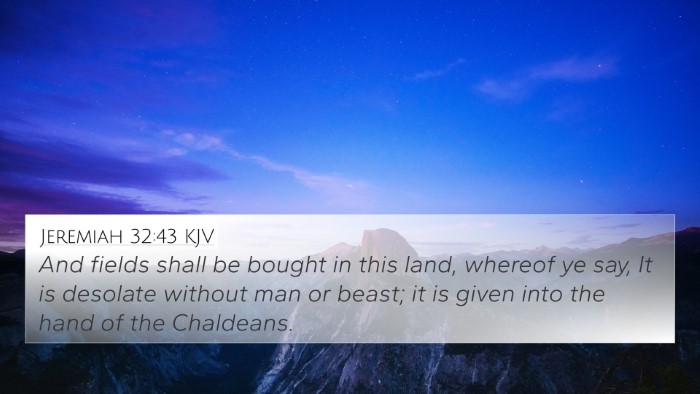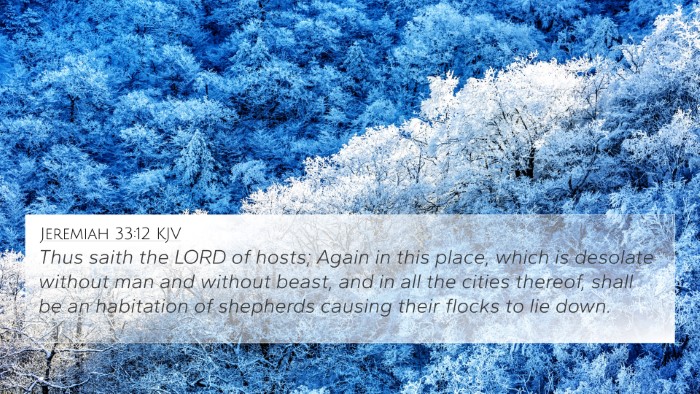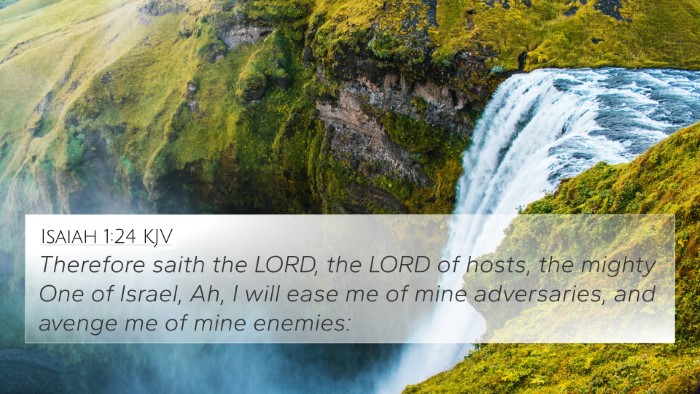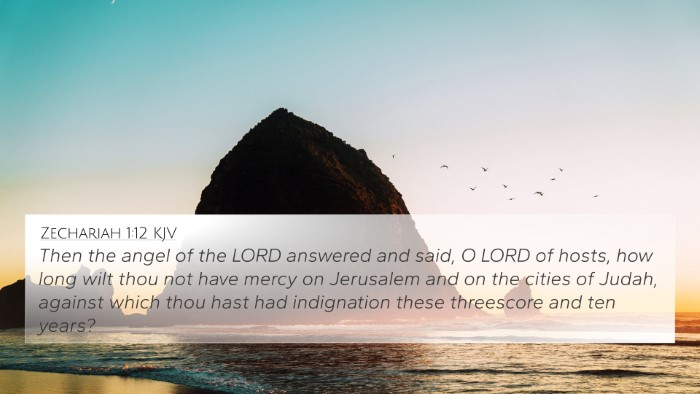Ezekiel 38:12 - Meaning and Interpretation
Ezekiel 38:12 states: "To take a spoil and to take a prey; to turn your hand upon the desolate places that are now inhabited, and upon the people that are gathered out of the nations, which have gotten cattle and goods, that dwell in the midst of the land."
Summary of Insights
This verse is part of a larger prophetic message from Ezekiel concerning a future invasion led by Gog of the land of Magog, representing powers opposing Israel. The verse emphasizes the intent of Gog's coalition to plunder Israel, which is described as a land that has been desolate but is now inhabited and prosperous.
Thematic Connections and Interpretations
- Matthew Henry: He remarks on the significance of God's judgment against nations that conspire against His people. The mention of the "spoil" indicates that the invaders will be motivated by greed.
- Albert Barnes: He emphasizes the gathering of people from different nations and their coming together for a single purpose: to attack Israel, which has been restored to a position of blessing and abundance.
- Adam Clarke: He notes that the "desolate places" represent both the physical and spiritual restoration of Israel, highlighting that God has rebuilt what was once broken and decayed.
Cross-Referencing Biblical Texts
Understanding Ezekiel 38:12 requires examining it in light of other scriptural references. Here are significant Bible verses that exhibit connections and parallels:
- Isaiah 60:11-12: This passage speaks to the nations that will come and serve Israel, contrasting Gog’s purpose to take away.
- Joel 3:2: This verse discusses gathering nations to judgment, suggesting a divine reckoning for those who oppress God's people.
- Revelation 20:8: This speaks of Gog and Magog rising again in an apocalyptic context, linking to the themes of rebellion and divine retribution.
- Ezekiel 36:10: This acts as a precursor to God's restoration of Israel, where desolation is turned to abundance.
- Jeremiah 30:18: It discusses the restoration of cities, reinforcing the theme of rebuilding after devastation.
- Zechariah 12:2: This verse presents Jerusalem as a cup of trembling, suggesting the nations’ helplessness against God's protection.
- Romans 11:25-26: These verses discuss Israel’s eventual restoration in relation to the Gentiles, echoing themes present in Ezekiel.
- Psalms 83:4: This psalm reflects on the conspiracies against Israel, similar in theme to the intentions presented in Ezekiel.
- Matthew 24:7: This gives insight into the signs of the end times, including nations rising against nations, mimicking Gog's intentions.
- Micah 4:11-13: Similar themes of nations gathering against Israel are found here, connecting closely with Ezekiel’s warning.
Understanding the Intricacies of Ezekiel 38:12
Applying this verse to modern contexts involves recognizing the enduring relevance of its themes: protection, restoration, and divine judgment. Through comprehensive Bible cross-reference systems, readers can explore how the narratives intertwine across both the Old and New Testament.
Tools for Bible Cross-Referencing
To deepen your understanding of Ezekiel 38:12 and its connections, consider utilizing various Bible reference resources:
- Bible concordance: Aimed at tracking themes and words across scripture.
- Cross-reference Bible study: Engaging with similar themes using analytical comparisons.
- Comprehensive cross-reference materials: Guides and tools designed for deeper scriptural analysis.
- Cross-reference Bible study methods: Frameworks to aid in comparative analysis and understanding.
- Bible cross-reference guide: Handy references for quick context and comprehension.
Exploring Inter-Biblical Dialogues
The discussion of Ezekiel 38:12 opens up an opportunity for inter-Biblical dialogue. This involves interpreting the themes and narratives from various books in the Bible to see how they communicate with one another.
Conclusion
Studying Ezekiel 38:12 provides valuable insights into Biblical prophecy and the historical implications of divine judgment and restoration. By engaging with cross-referenced texts, readers can appreciate the rich tapestry of God’s redemptive work through scripture.
